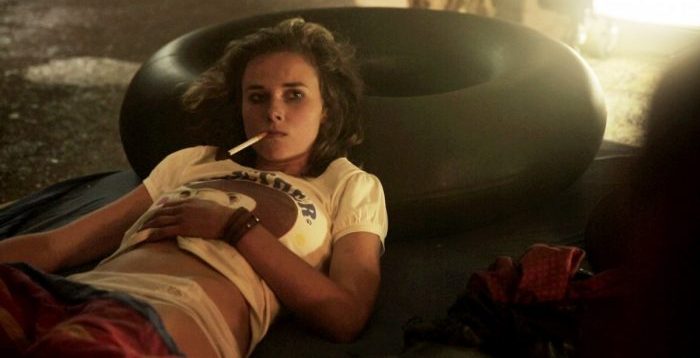By Lyn-Kateri Visedsuk
Director: Julius Schultheiß
Thirty-something nurse Lotte is not what she appears to be on the surface. Her rather sensible day-job clashes in a very funny way with her craven, ‘rock-star’ night-life filled with sex, drugs and alcohol. Her childish behaviour has her stumbling from door-to-door, man-to-man, and squatting from place-to-place. Lotte is also not as kindhearted as her profession may suggest, nor is she someone to mess with. She is street wise and mean enough to beat a bag snatcher on the street of Berlin, with only the use of a wooden hairbrush.
But despite her strong facade, we sense some melancholy in Lotte and her past. While men would describe Lotte’s life as a ‘black hole’, and her as someone who simply just doesn’t give a shit, the reality of her existence is more like a deflated balloon – devoid of feelings and emotional connection. However, when Lotte has an encounter with her ex-lover Marcel and abandoned daughter Greta, her character begins to change. And as we dive deeper into the lives of these characters, Lotte manifests as a contemporary mother-daughter story.
The feature debut of director Julius Schultheiss, Lotte is a sharply written tragicomedy with a subtle performance from Karin Hanczewski at the centre. Although Schultheiss says that almost a quarter of the script was improvised, the writing and performances are altogether well executed under his direction. With many scenes revolving around Lotte’s shady nightlife, the cinematography of Martin Neumeyer makes keen use of shadows, perhaps hiding the shady secrets of Lotte’s lifestyle and past. This technique finds effective contrast when the film brightens up with the introduction of Lotte’s daughter, Greta. And while Lotte is dressed often seen wearing the same grey singlet with torn jeans and black leather jacket when she isn’t in her nurse’s uniform, wardrobe styles for Greta remain lighter and softer in colours, with prominent use of pink to emphasise her innocence and angelic role in the film.

While Schultheiss says that Lotte’s character was not directly based on any real person, he did allegedly know a nurse in her early 30s with an 18-year-old daughter, who presented themselves as basically ‘girlfriends’, rather than parent and child. The film itself can best be described as an emotional and interesting work about a parental role-reversal within a dysfunctional family, depicting how mothers and daughters can sometimes behave more or less like sisters.
While Lotte’s character is exceedingly flawed, especially as a mother, it is difficult not to be hopeful that she will eventually be saved by the innocence of her well-intentioned (and, in some ways, more grown up) daughter. In the moments where Lotte seems to give in to her daughter’s love and her harsh exterior is eased, we get the sense that sometimes the bond of love between mother and daughter can work in all kinds of mysterious ways, even when it is actually the child who is raising the parent.








